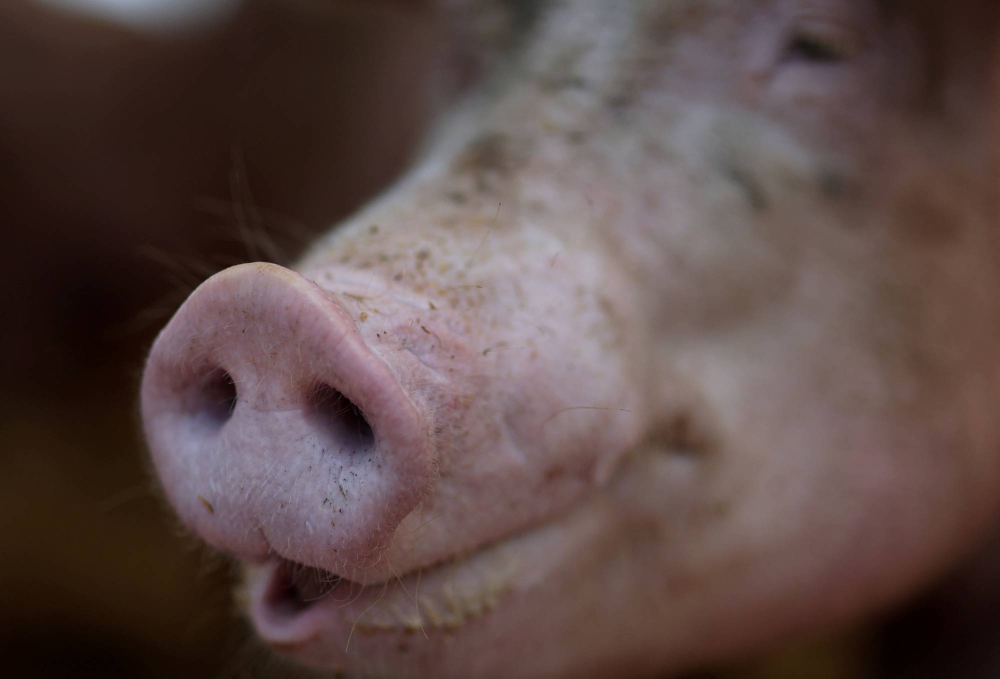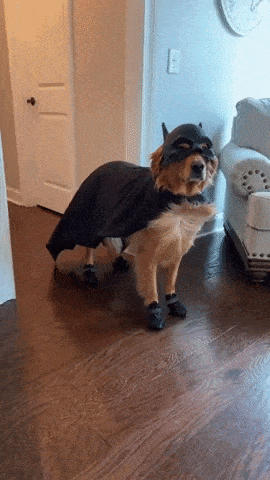Hello 👋
It’s a special Easter Monday edition of Weekend Rounds this week! Happy Easter to all those who celebrate, and may you have more rabbits than chocolate rabbits in the clinic!
Let’s get right to it. Here’s the latest in veterinary news, entertainment, and education:
💼 Business of Vet Med
🧠 New course: Foundations of Small Animal Neurology now available!
👏 Highlighting some stellar veterinary work
🟪 Vet Connections 3
🚀 Quick hits
💼
Business Round Up
It was a busy week on the business side of the profession, as three major stories made headlines this week:
Loyal - the first FDA-recognized drug designed to extend canine lifespan - finished a Series B fundraising round by securing an additional $45 million in private funding. This latest investment brings their total fundraising to $125 million since 2019. According to a note from the Founder, the funding will be used for various things including bringing their first product to market and launching a clinical trial of more than 1,000 dogs across 50 states. Don’t be surprised if clients start asking about the drugs sooner than you think. Read more in Veterinary Practice News.
PetIQ, whose veterinary practices proliferated inside retail partners such as Walmart and Meijer has officially closed 149 clinics, citing a tight labor market for veterinarians. The closures were initially announced late last year, and more than halve the number of veterinary practices under management.
At the same time, the first Walmart clinic in Atlanta is operated by PetIQ, and the company is considering adding practices under this new Walmart-branded format. These changes are coming at an interesting time for mass retailers in the veterinary space - PetCo is slowing the rate at which new clinics are opened while Chewy is set to open their first clinics in Florida. Read more in VIN.
VetChip, an Australian animal biotechnology company, won the 2024 Pet Care Innovation Prize at the recent Global Pet Expo in Orlando, Florida. VetChip has developed an implantable smart microchip that monitors an animal’s temperature, heart rate, respiratory rate and tissue oxygenation. If widely available and safe, the implications of this technology could have wide-ranging impact in companion animal practice, improved herd health management, and for high-performance animals in equestrian. dvm360 has more.
🧠
Foundations of Small Animal Neurology

Add over four hours to your course library with Dr. Andrew Barker’s new Foundations of Small Animal Neurology course!
Dr. Barker’s comprehensive course will equip you with essential knowledge and skills in diagnosing and managing neurologic conditions in small animals. This course totals 4.5 hours of CE credits (submitted but not yet approved in jurisdictions that recognize RACE) and covers crucial aspects of small animal neurology through a series of engaging lessons in three sections:
🔍 Section 1: Small Animal Neurologic Examination
Master the art of conducting a thorough neurologic examination with a focus on assessing gait, mentation, and cranial nerves. Explore key reflexes and pain responses essential for accurate diagnosis.
🧠 Section 2: Small Animal Seizure Disorders
Dive into the intricate world of seizure disorders, from understanding different seizure types to exploring diverse etiologies. Gain insights into anti-epileptic drugs and their role in managing seizures effectively.
🦴 Section 3: Small Animal Spinal Disorders
Uncover the complexities of spinal disorders in small animals, from neurologic examination techniques to diagnostic imaging modalities. Explore common spinal conditions such as intervertebral disc disease (IVDD), myelomalacia, and traumatic injuries.
🎓 Course Structure
Each section includes bite-sized lessons that focus on one learning outcome to facilitate optimal learning retention. From introductory concepts to advanced treatment modalities, participants will feel confident about diagnosing and treating dogs and cats with neurologic disorders.
👏
Incredible vets doing incredible things
It’s always lovely to see veterinarians get their well-deserved recognition.
This week, a feature in the New York Times detailed how a team of veterinarians and engineers have been developing an innovative experimental diagnostic tool: a breath-collection drone. The drone, which acts as a flying petri dish that can be steered into an orca’s plume, allows vets to perform regular remote health assessments and intervene with personalized medical care when necessary.
While this personalized healthcare approach for wild animals is unconventional, the team is working to save the Southern Resident killer whales, one of several distinct orca communities that inhabit the Pacific Northwest, which were listed as endangered in 2005 and only 75 whales remain.
The veterinary team involved is Dr. Joe Gaydos, science director of the SeaDoc Society, and Dr. Hendrik Nollens, vice president for wildlife health at the San Diego Zoo Wildlife Alliance, in partnership with Brad Hanson, a wildlife biologist at NOAA’s Northwest Fisheries Science Center.
Meanwhile, The Schwarzman Animal Medical Center (AMC) in New York is expanding and upgrading. The AMC, located in Manhattan’s Upper East Side, is undergoing a significant expansion, adding 15,838 square feet to its existing facility. The hospital, founded in 1910, has outgrown its current building and aims to create more spacious, modern facilities. A capital campaign raised over $100 million, with the largest-ever donation of $25 million from philanthropists Stephen and Christine Schwarzman.
The AMC has been influential in veterinary medicine, pioneering 24-hour emergency care and specialty practice. Despite competition from for-profit practices, AMC remains committed to its nonprofit status. The hospital’s unique work environment, uncompensated care, and housing perks attract and retain veterinary professionals.
The ongoing renovation will result in a larger emergency room, intensive care unit, and other amenities. AMC plans to offer mid-career education programs and explore expanding to other locations. The hospital’s legacy lies in its commitment to quality care, specialists, and a lasting impact on veterinary medicine. We salute the incredible team of vets doing incredible things at the AMC and look forward to seeing what comes next.
🟪
Vet Connections #3
Ask and you shall receive! Here is a brand new Veterinary Connections puzzle for you to dive into.
Reply to this email or message us on Instagram when you’ve found all 4 groups of 4!
Connections is a game popularized by The New York Times. Veterinary Connections uses a similar format solely for the purposes of education. Play todays New York Times Connections here.
🚀
Quick Hits
Here are some of the other stories that caught our eye and we're following this week from around the veterinary world and animal kingdom:








